Search Results
Showing results 1 to 20 of 31
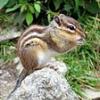
Ask an Elder
Source Institutions
In this activity, learners listen to a story and tell a story of their own as they learn about the importance of elders in Native American cultures.
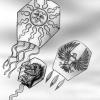
Sled Kite
Source Institutions
In this activity, learners build a sled kite that models a type of airfoil called a parawing.

Shape Up!
Source Institutions
In this activity (25th on the page) about learning and memory, learners explore a training method that animal trainers employ called "shaping." Working in pairs, learners will attempt to "shape" each

Robot Hands
Source Institutions
This activity (on page 2) explores how sensing is part of robotics. Learners try tying their shoes with different constraints.
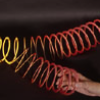
Seismic Slinky!
Source Institutions
Did you know that a Slinky makes a handy model of earthquake waves?

As Straight as a Pole
Source Institutions
In this engineering activity (page 3 of PDF), young learners investigate how a pole can be made stable by “planting” its base in the ground or adding supports to the base.
Up, Up and Away with Bottles
Source Institutions
In this activity, learners make water rockets to explore Newton's Third Law of Motion. Learners make the rockets out of plastic bottles and use a bicycle pump to pump them with air.
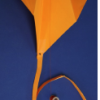
Kites
Source Institutions
In this engineering/design activity, learners make a kite, fly it, and then work to improve the design. Learners explore how their kite design variations affect flight.
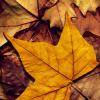
Shapes and Colors and Textures, Oh My!
Source Institutions
This is an activity about discovering the colors and beauty of nature. Learners will spend time outdoors, matching paint chip samples, colored paper, or colors of clothing to those found in nature.
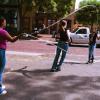
Twirling Rope Frequency
Source Institutions
In this activity (page 1 of the PDF under SciGirls Activity: Double Dutch), learners will stand twelve feet apart swinging a rope at the slowest tempo possible while someone uses a stopwatch to record
River Catcher
Source Institutions
In this activity (located at the top of the page), learners make an easy river strainer and see what they can catch.
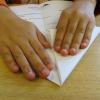
Family Flyers
Source Institutions
In this activity, learners work in teams to build and test paper airplanes. Learners try to fly their airplanes directly on the runway and earn points for accuracy.
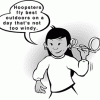
Hoopster: An Airplane Made from Paper Hoops
Source Institutions
This activity provides instructions for making an aircraft that can really fly using a straw and paper hoops!
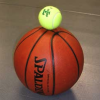
"Baseketball": A Physicist Party Trick
Source Institutions
This trick from Exploratorium physicist Paul Doherty lets you add together the bounces of two balls and send one ball flying.
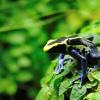
Frog Olympics
Source Institutions
Did you know that a bullfrog can jump a distance of 10 times its body length? Learn more about nature's most acrobatic amphibian, the frog, through this set of short, hands-on activities.

Exploring Fabrication: Self-Assembly
Source Institutions
In this activity, learners participate in several full-body interactive games to model the process of self-assembly in nature and nanotechnology.
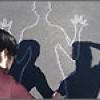
Changing Shadows
Source Institutions
In this sunny day, outdoor activity, learners observe changes in shadows over time. The activity also helps to develop a sense of the Earth's motion.

Styrofoam Traps
Source Institutions
In this activity, learners use Styrofoam to collect organisms from a pond, estuary or marine environment and then examine what they have caught with a microscope.
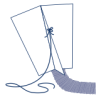
Go Fly a Kite
Source Institutions
In this hands-on activity, children create their own kites that can fly indoors. Learners are exposed to basic concepts of gravity and air resistance.
Pom-Pom Probability
Source Institutions
In this math activity, learners predict how many pom-poms they can toss inside a circle from three feet away. Use this activity to help learners explore probability.
